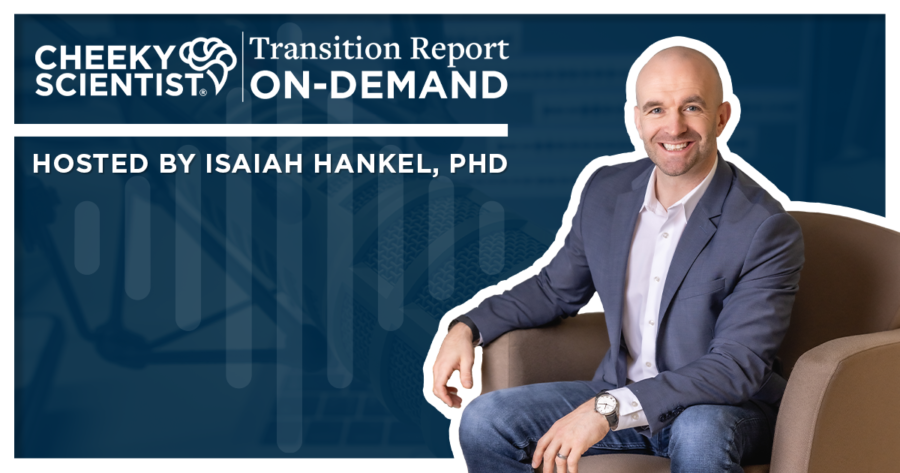Hosted By

Chief Executive Officer Cheeky Scientist

Join Isaiah as he covers 3 common hard-hitting R&D interview questions PhDs can expect to encounter and how you should answer
Here’s a quick rundown of this week’s episode…
- First, Isaiah discusses the reason many employers ask hard-hitting R&D interview questions
- Next, Isaiah provides 3 questions that PhDs can expect to encounter during their R&D interviews
- Finally, Isaiah explains what employers are looking for in your answers to these tough questions
From This Week’s Show…
The Sly Ways Employers Trip Up PhDs During An R&D Interview
Employers know which interview questions trip up PhDs and they want to see how you respond.
This is especially true when interviewing for a role in research & development.
Today, I’m going to review 3 hard-hitting questions that PhDs are likely to encounter during an R&D interview.
Demonstrate That You Know Common Industry Adages
The first is “How is your research impacted when you’re put under pressure?”
When they ask this, they’re not looking for “pretty good” or “not so great”.
They want to know that you don’t see yourself as a student or trainee anymore; that you can handle high stakes pressure.
In response, you could say “I deal with pressure by assessing my priorities, creating a step-wise plan, adapting the plan when necessary, and ensuring that I manage my time”.
Show them that you understand the industry axiom of “Prioritize, then execute.”
How To Answer Hypothetical And Failure-Based Questions
Another dread-inducing R&D interview question is the hypothetical question.
For example, “If I gave you XYZ cells and asked you to solve ABC, what experiments would you do?”
While this is a generic example, the best way to answer is to relate back to your previous research and skillset.
To elaborate, provide an example of what you did during your PhD.
Mention a time when you had to design an experiment or a project from scratch and what your thought process was.
Employers also want to know is how you deal with failure.
R&D interviewers may ask “What if your experiment, or research as a whole, doesn’t work?”
Here, tell them of a time you successfully turned your failures into a success.
It’s important to show your perseverance and patience; you also need to make it clear you understand what your priorities are.
For example, if an experiment hasn’t worked for months, maybe it’s no longer worth wasting resources on it.
You have to show that you know when something isn’t worth pursuing and that you’re able to adapt.
If you’re ready to start your transition into industry, you can apply to book a free Transition Call with our founder Isaiah Hankel, PhD or one of our Transition Specialists. Apply to book a Transition Call here.










